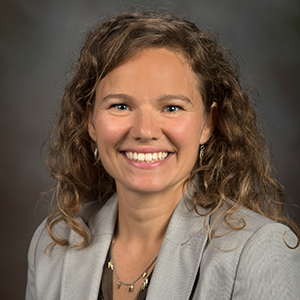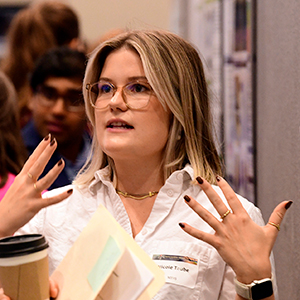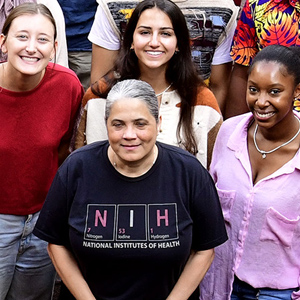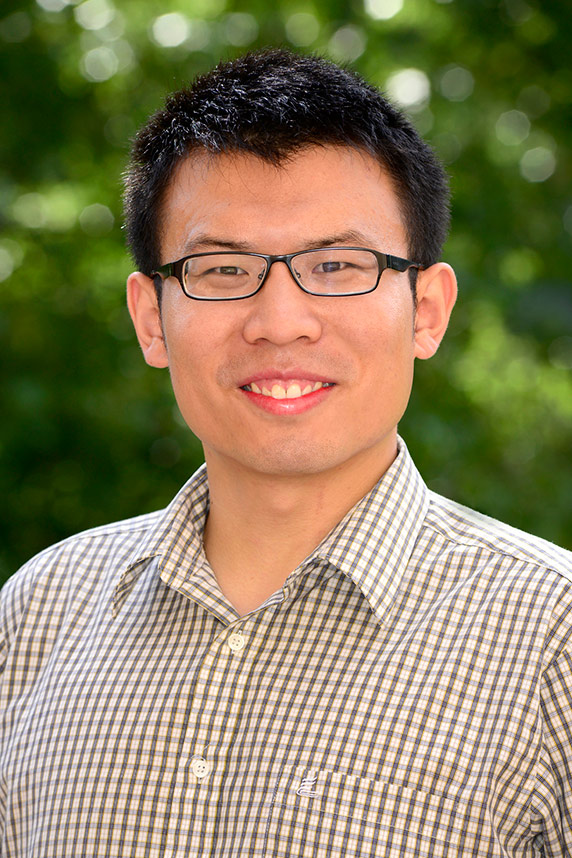 Zhao said he learned about his new position through a speaker at an NIEHS seminar. (Photo courtesy of Steve McCaw)
Zhao said he learned about his new position through a speaker at an NIEHS seminar. (Photo courtesy of Steve McCaw)As an NIEHS trainee, Fei Zhao, Ph.D., studies the development of male and female reproductive tracts under the mentorship of acclaimed scientist Humphrey Yao, Ph.D. In January 2020, Zhao will take what he has learned at NIEHS and begin an exciting new position at the University of Wisconsin-Madison.
Zhao, who is an Intramural Research Training Fellow at NIEHS, became interested in organ development during his doctoral program at University of Georgia, while studying reproductive toxicology.
When it became time for Zhao to think about the next step of his career, he knew he had to work with Yao, who heads the NIEHS Reproductive Developmental Biology Group. “He is really well known in the [developmental biology] field, and I knew he could teach me a lot,” Zhao said.
He credits much of his success to the support from fellow lab members and mentoring by Yao, along with Francesco Demayo, Ph.D.; Ken Korach, Ph.D.; and others in the Reproductive and Developmental Biology Lab, which Demayo leads.
When asked what made Zhao a successful trainee, Yao said, “He was able to identify questions that few have even thought about. His K99/R00 award and NIEHS DIRA award [see sidebar] are great examples of his ability to be an independent scientist.”
Opportunities combined with clear goals
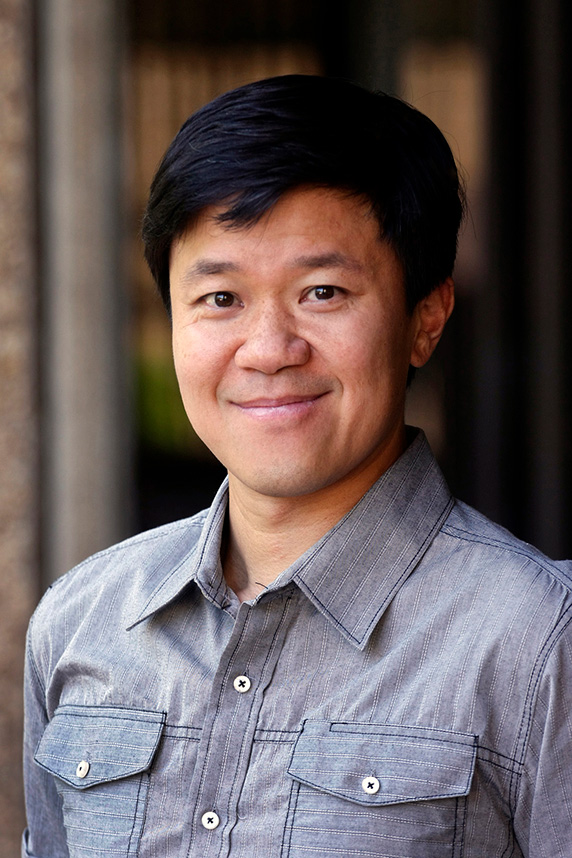 Yao was voted 2016 NIEHS Mentor of the Year and was recognized during that year’s Science Days festival. (Photo courtesy of Steve McCaw)
Yao was voted 2016 NIEHS Mentor of the Year and was recognized during that year’s Science Days festival. (Photo courtesy of Steve McCaw)During his time at NIEHS, Zhao tried to make the most of the opportunities available to trainees at the institute. Workshops in management, mentoring, and writing grants all helped him to prepare for his new position.
“In such a great environment, there is no excuse to not take advantage of as many opportunities as possible,” Zhao said. His advice to current trainees: “Have clear goals and trust yourself.”
Current trainees should also practice writing as much as possible, specifically grant proposals. “[They are] very important if you want to become an independent researcher,” he said.
Developmental discoveries
In 2018, Zhao received a K99/R00 grant, which he will use to start his own lab in Wisconsin. In his funding proposal, Zhao explained that some of the male reproductive tract remains after an embryo has been sexually differentiated into a female and goes on to contribute to the female reproductive tract.
This revelation opens up a new direction following his first publication as a postdoc, in the journal Science. In Madison, Zhao hopes to explore this research further.
Looking forward, Zhao hopes that he will be able to produce research that will help patients. “That’s always the larger goal,” he said. Except for the Wisconsin winters, Zhao is excited to move to Madison and begin the next chapter of his research career.
Citation: Zhao F, Franco HL, Rodriguez KF, Brown PR, Tsai MJ, Tsai SY, Yao HHC. 2017. Elimination of the male reproductive tract in the female embryo is promoted by COUP-TFII in mice. Science 357(6352):717–720.
(Kathleen Foley is an Intramural Research Training Award postbaccalaureate fellow in the NIEHS Receptor Biology Group.)





